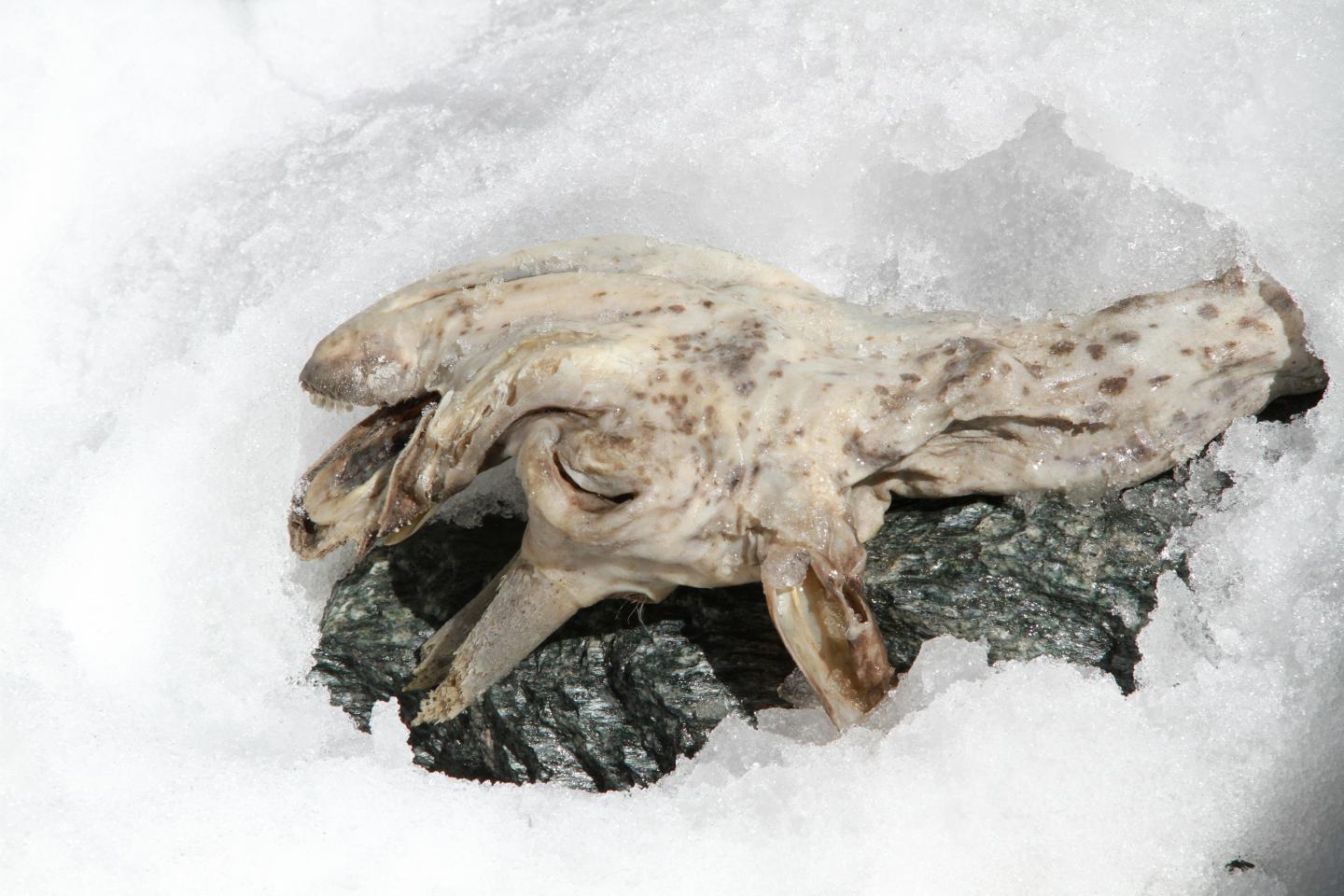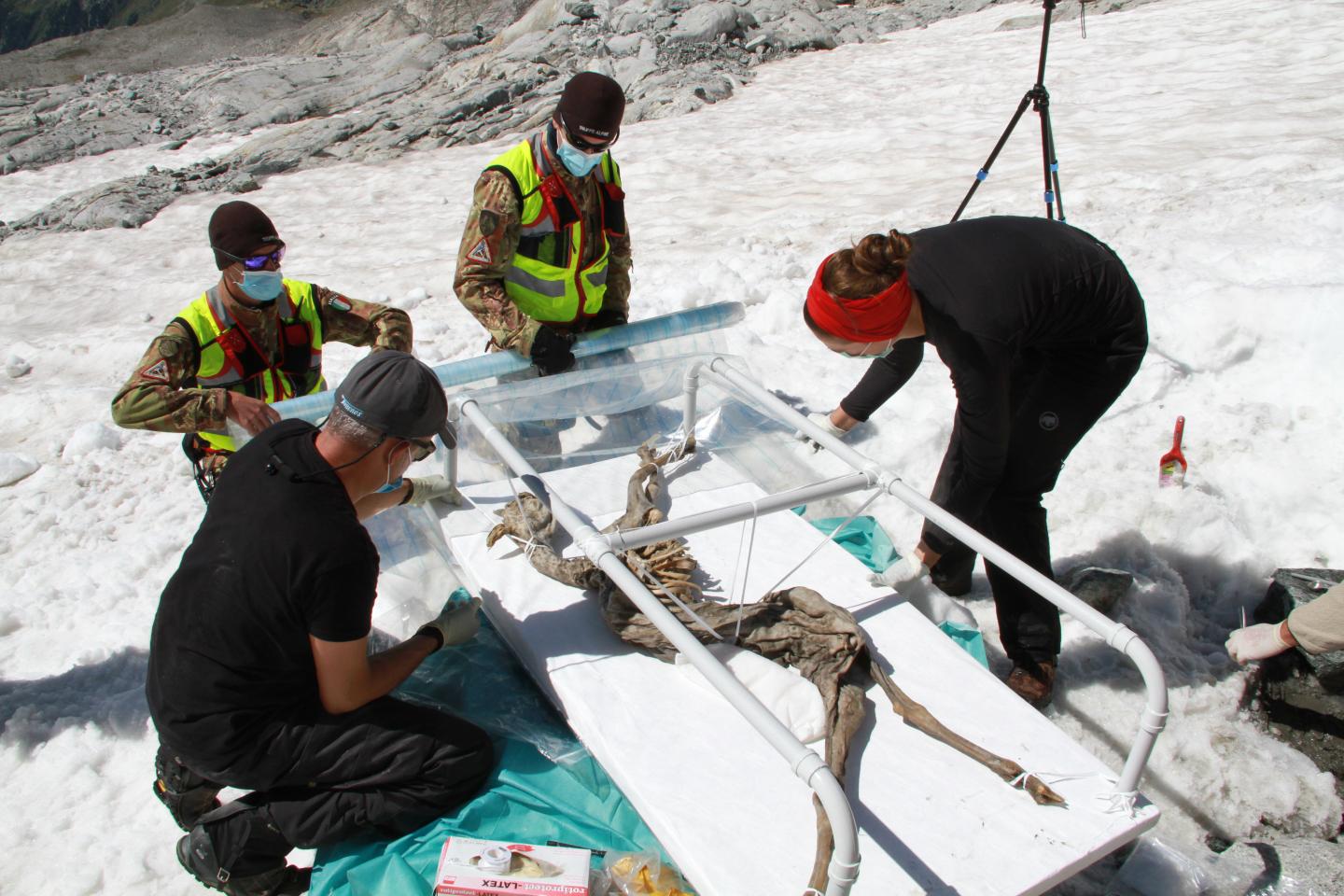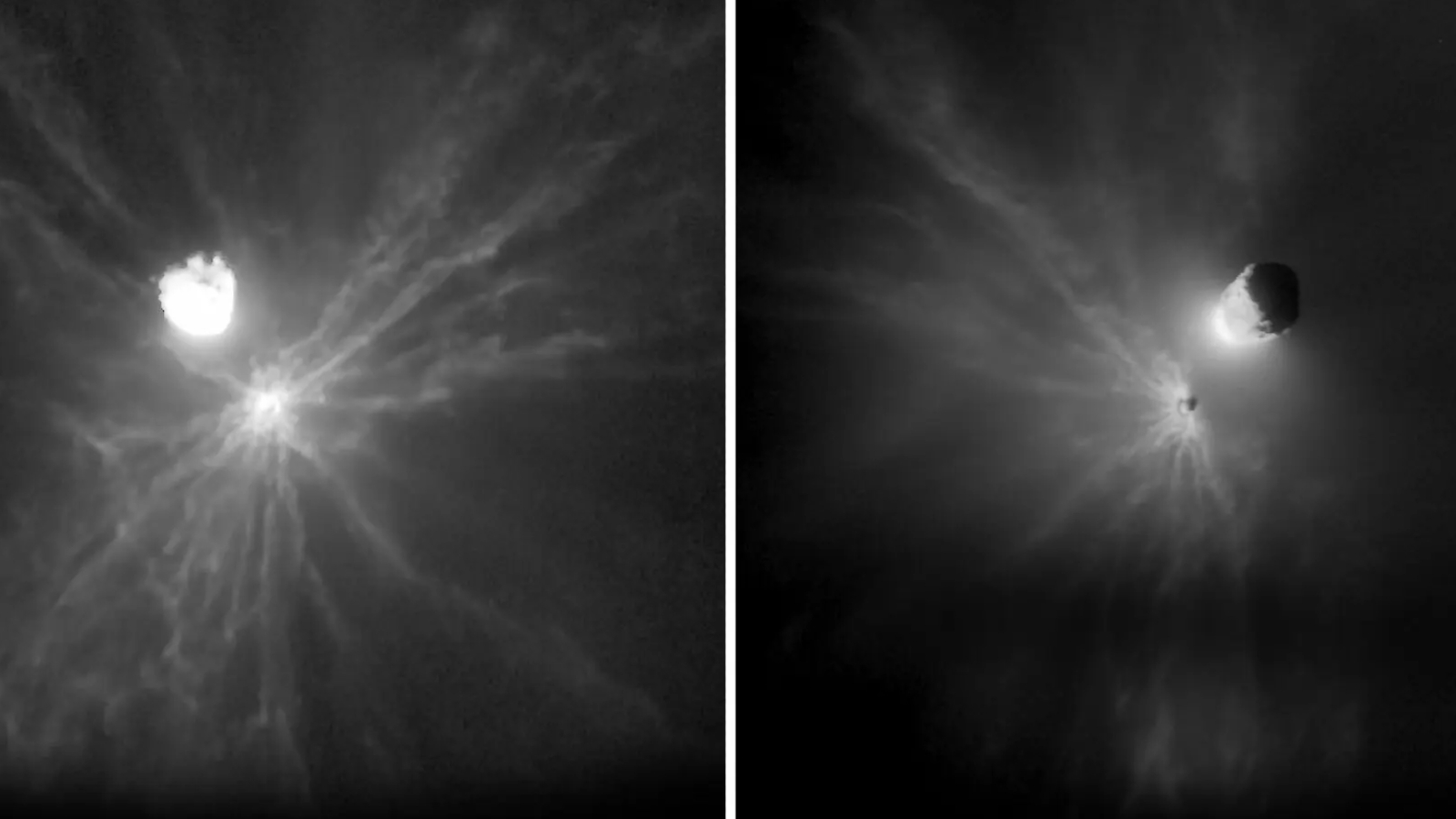400-year-old mummified goat found frozen in Alps by champion skier
The goat died 400 years ago but is still recognizable.

A hairless, leathery horror found encrusted in Alpine ice is a chamois that died 400 years ago.
The long-dead goat-antelope was discovered in Val Aurina, South Tyrol, Italy by Italian alpinist and champion skier Hermann Oberlechner, who was on a 6-hour hike from civilization when he noticed something strange sticking out of the ice.
"Only half of the animal's body was exposed from the snow," Oberlechner said in a statement. "The skin looked like leather, completely hairless; I had never seen anything like it. I immediately took a photo and sent it to the park ranger, together we then notified the Department of Cultural Heritage."
The discovery is reminiscent of other ice mummies found at high altitudes, including the famous "Iceman" Ötzi, whose 5,300-year-old mummified body was found by hikers in the Italian Alps in 1991. That similarity has scientists excited about the find: They now plan to use the rare chamois mummy to learn how to better preserve ancient DNA for analysis in the lab, hoping to be prepared the next time a human mummy appears out of the ice.
Related: In photos: A new face for Ötzi the iceman mummy

"Our goal is to use scientific data to develop a globally valid conservation protocol for ice mummies," Albert Zink, director of the Institute for Mummy Studies at Eurac Research in Italy, said in the statement. "This is the first time an animal mummy has been used in this way."
To get that far, though, Eurac researchers had to get the mummy out of the mountains. The goat's final resting place was at 10,500 feet (3,200 meters) elevation. It had been buried by a glacier and only recently become exposed due to the retreat of the ice. To move the chamois, the researchers contacted the Alpine Army Corps, the mountain infantry of the Italian Army. Eurac iceman conservationist Marco Samadelli designed and built a special case, which soldiers hooked below a helicopter piloted by aviationists trained to operate at high altitudes. The chamois carcass was then taken to Eurac's conservation lab in Bolzano, Italy, where it is being stored at 23 degrees Fahrenheit (minus 5 degrees Celsius).
Get the world’s most fascinating discoveries delivered straight to your inbox.
As long as ice mummies are entombed in their glacial graves, their tissue — and thus, their DNA — is preserved. But as soon as these mummies start to heat up, their tissue can degrade, and so can the genetic information in the mummies' cells. Samadelli and his team have done research on optimal preservation conditions to keep ice mummies intact. The newly discovered chamois gives them the opportunity to study how those conditions affect the mummies' DNA.

"With repeated in-depth analysis, we will verify what alterations the DNA undergoes when external conditions change," Samadelli said in the statement.
Researchers expect this information to come in handy. As mountain glaciers melt around the world due to climate change, they will likely disgorge more ancient corpses, each containing genetic keys to the past.
Originally published in Live Science.

Stephanie Pappas is a contributing writer for Live Science, covering topics ranging from geoscience to archaeology to the human brain and behavior. She was previously a senior writer for Live Science but is now a freelancer based in Denver, Colorado, and regularly contributes to Scientific American and The Monitor, the monthly magazine of the American Psychological Association. Stephanie received a bachelor's degree in psychology from the University of South Carolina and a graduate certificate in science communication from the University of California, Santa Cruz.
